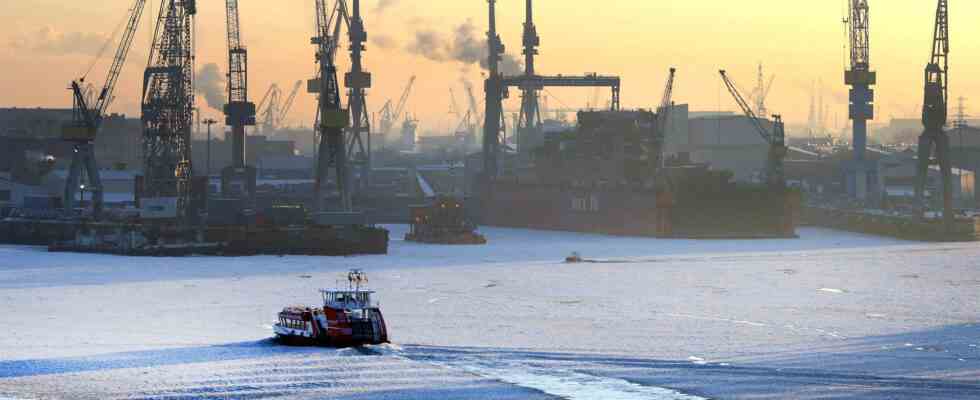Status: 11/17/2022 4:55 p.m
Is the worst still to come for the German economy? The German Chamber of Industry and Commerce expects a significant slump in exports. Industrial orders are already declining.
According to the Association of German Chambers of Industry and Commerce (DIHK), German exports will fall in the coming year due to the weakening global economy. They are likely to be two percent weaker than in the current year, said Volker Treier, head of foreign trade at the DIHK. “The slump in exports is here,” he stressed. This means that the German export industry earns more than 70 billion euros less abroad. In the past ten years, exports have only grown by an average of 3.5 percent, as trade barriers and protectionism have increased.
DIHK expects a stronger decline in GDP
For the coming year, the DIHK expects the world economy to grow by 2.5 percent at best. He is even more pessimistic than the International Monetary Fund (IMF), which expects an increase of 2.7 percent.
The DIHK also assumes that German gross domestic product could fall by three percent in 2022. The federal government and the economy are more optimistic: they only expect a minus of 0.4 and 0.2 percent, respectively.
Every second German company abroad expects a downturn
The basis for the export forecast is a survey by the Chambers of Commerce Abroad, or AHK for short. They asked more than 3,100 German companies active abroad for their assessment of the economic situation. The result: From the point of view of international German companies, the world economy is facing a frosty winter.
They cite the economic consequences of the Russian war against Ukraine and China’s zero-Covid policy as the main reasons. Almost every second company (47 percent) expects an economic downturn at their respective location, as can be seen from the “AHK World Business Outlook”, which is published twice a year.
Prospects in Europe are deteriorating
Only in spring 2020, at the beginning of the corona pandemic, did more companies assume that the economy would slow down, at that time it was 65 percent. Only 17 percent of the companies surveyed expect the economy in their host country to improve over the next twelve months. According to the DIHK survey, the prospects in Europe in particular are deteriorating. Companies in Asia Pacific ex-China, Africa, Middle East, South & Central America and North America are less pessimistic.
Despite less promising economic expectations, German companies at international locations are currently still robust: almost half of the companies are reporting a good business situation. For 45 percent, the current business is at least running satisfactorily. Only every tenth German company abroad reports a poor business situation.
Order backlog in manufacturing declines
In Germany, meanwhile, the order backlog in the manufacturing sector is declining: in September it was down 0.9 percent on the previous month, as reported by the Federal Statistical Office. “This means that the order backlog has fallen significantly again for the first time after increasing by a total of 37.6 percent almost continuously from May 2020 to August 2022.”
After the first phase of the Corona crisis, strong demand for industrial products and at the same time impaired supply chains meant that companies were not able to process all incoming orders and open orders kept piling up. According to the Federal Statistical Office, this development has been interrupted for the time being. According to this, industrial companies as part of the manufacturing sector landed four percent fewer new orders in September than in the previous month.
Incoming orders were burdened, among other things, by the consequences of the war in Ukraine and the energy crisis. Despite the setback, the order backlog is “still at a very high level,” said an expert from the Institute for the World Economy (IfW).

